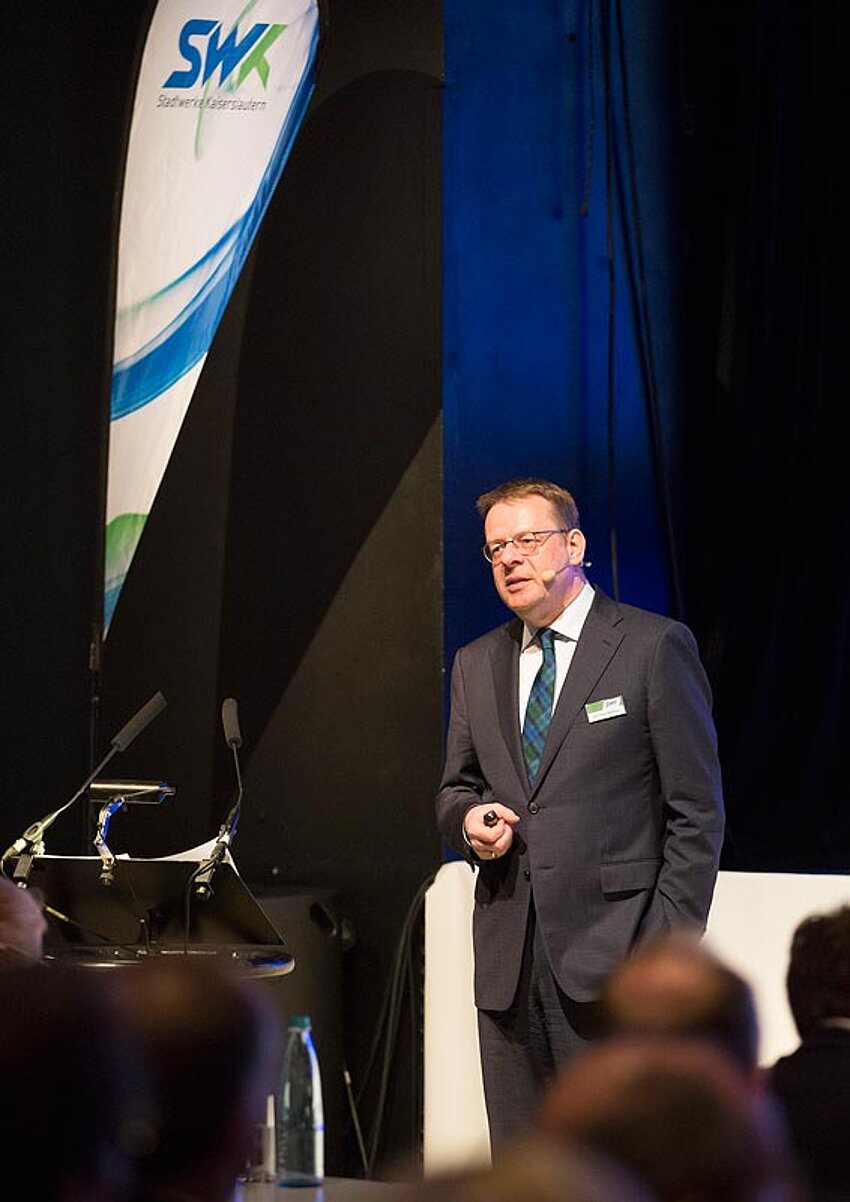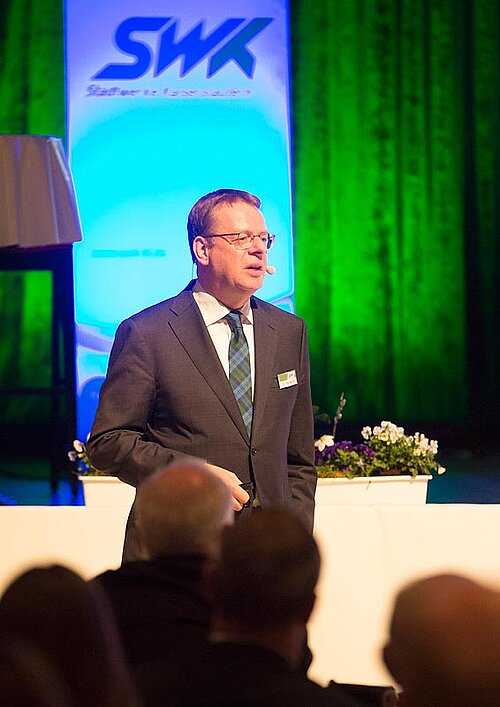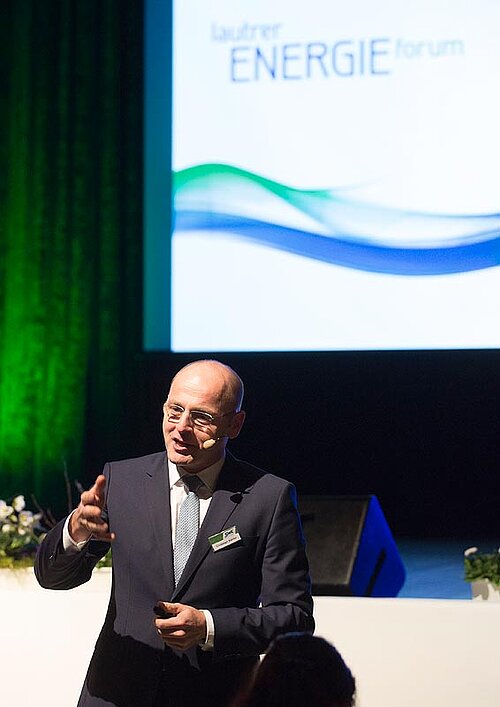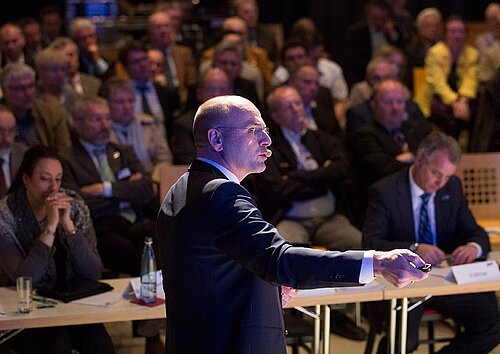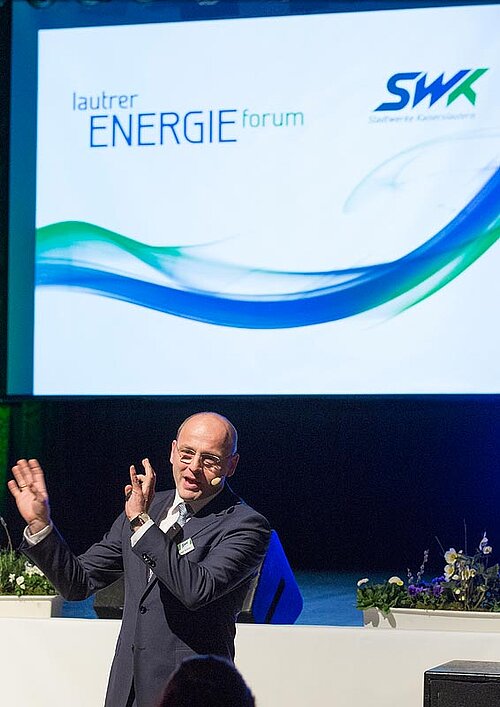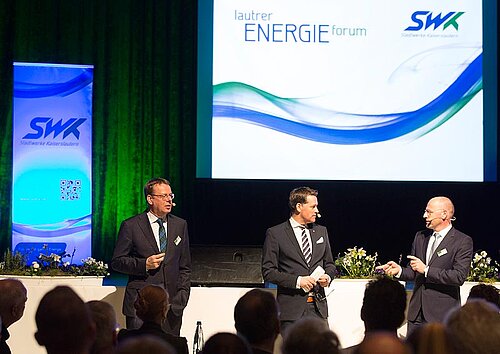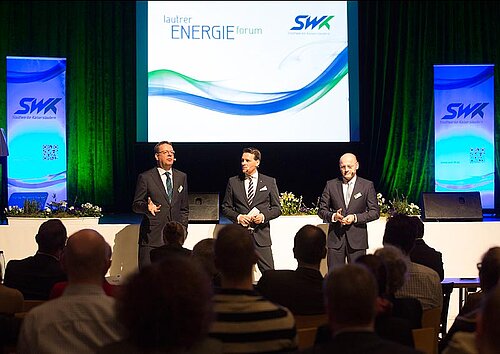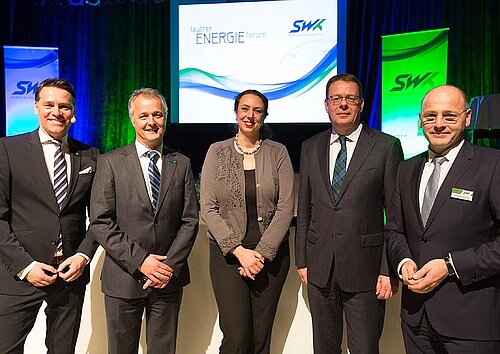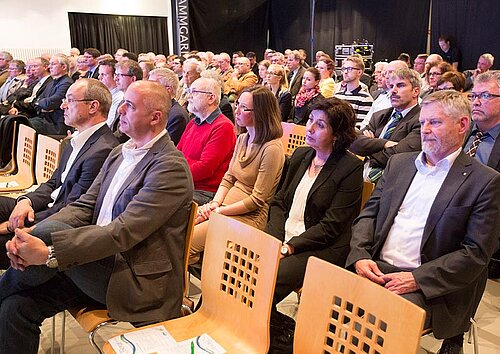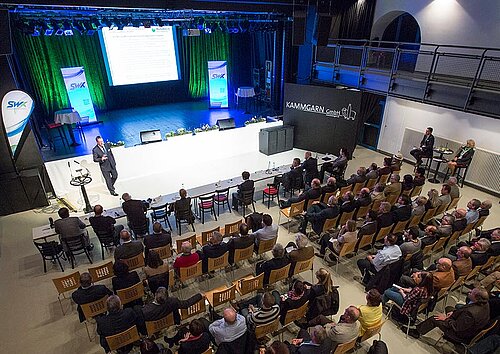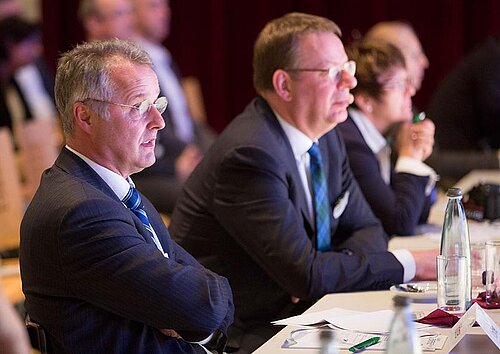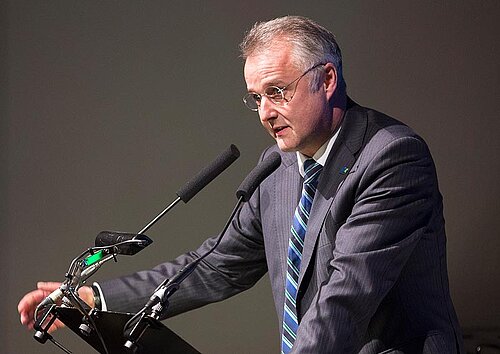New design of the electricity market – How much security of supply do we want?
On 18 March 2015, Stadtwerke Kaiserslautern invited several experts to the Kammgarn Cultural Center to discuss various models for a new design of the electricity market. The future design of the electricity market will affect every electricity customer. For the consumers, the issue is ultimately security of supply and the associated costs.

This red-hot topic has been keeping the government and the energy suppliers on their feet for months. The new design of the electricity market shall serve as a basis for providing a sufficiently large number of conventional power plants. So this is an economic issue, since investors are only willing to invest in new plants if these can be refinanced over their lifecycle.
Restructuring of the energy sector
The energy sector is facing comprehensive change. Never before have the challenges been as great as now. The context in which the issue of a new design of the electricity market arises is very complex. Many topics that are being discussed among the energy providers and the government play a role. The decision about the energy transition with the phase-out of nuclear power is final. Between now and 2022, major capacities will be taken off the grid.
Renewable and conventional energy on the electricity market
It is encouraging that the proportion of renewable energies is growing. This entails greater requirements on the flexibility of the electricity market. Furthermore, the increasing proportion of renewable energies has an effect on pricing on the electricity market on the one hand and makes conventional power plants increasingly unprofitable on the other hand. As a result, the willingness to invest in conventional power plants decreases. However, due to the liberalization of the energy market, investments made into plants must be refinanced via the electricity market for the first time. In addition, the costs for conventional power plants have risen significantly, whereas the costs for the expansion of renewable energies have fallen massively.
Creating security of electricity supply
The electricity market of the future must create the basis both for the expansion of renewable energies and for the provision of fossil power plants and storage capacities. Because in times when sun and wind do not provide enough energy, these are needed urgently to guarantee security of supply.
Challenge for energy service providers
The term design of the electricity market, which appears unwieldy to non-experts, encompasses a series of large questions: How to make the energy transition a success? How to implement it effectively and cost-efficiently? How to guarantee comprehensive security of supply? How much security of supply do we need? Which price are we willing to pay for it? What do we need to do to get people to accept the energy transition?
New electricity market model
Depending on our answers to these questions, we get different models. Regarding the issue of what the electricity market should look like in the future, opinions vary widely. Some favor a government-controlled model, while others support a market-driven model. The issue to be discussed is thus whether an evolution of the existing electricity market will be enough, or whether we will need a so-called capacity market.
Electricity capacity market
The term capacity market stands for the idea that energy supply companies do not only receive payment for the electricity they deliver, but also for the provision of facilities for times when sun and wind do not provide any or not enough energy. The mechanisms with which such a capacity market should work are also a matter of debate. At the 7th Kaiserslautern Energy Forum, two experts presented their views of a capacity market.
The question presented by Dr. Felix Chr. Matthes, Research Coordinator Energy and Climate Policy at the Öko-Institut e.V. in Berlin, in his presentation entitled “The design of the electricity market in the energy transition” was: How can we create a sustainable economic basis for a regenerative energy supply system? According to him, the issue of security of supply requires a new system since the existing market can guarantee neither the expansion of regenerative energies nor that of conventional power plants. The model of a “focused capacity market” could be such a system. Matthes advocated an incremental procedure.
Christoph Kahlen, Manager Corporate Communications at Thüga AG München, presented the “Integrated Market Model” introduced into the discussion by the Thüga Group as an alternative. This model is based on three pillars. Here the plan is to combine renewable energies and conventional energies in one market. The expansion of renewable energies should be done in a competitive way. The third pillar is the capacity market. In times of a “dark spell”, power plants, storage systems, or the customers’ flexibility in terms of demand can form a power reserve. The model transfers responsibility to the customers. The customers should decide for themselves which degree of security of supply they need.
Further information about the 7th Kaiserslautern Energy Forum can be found in our online magazine "mit ganzer energie".

